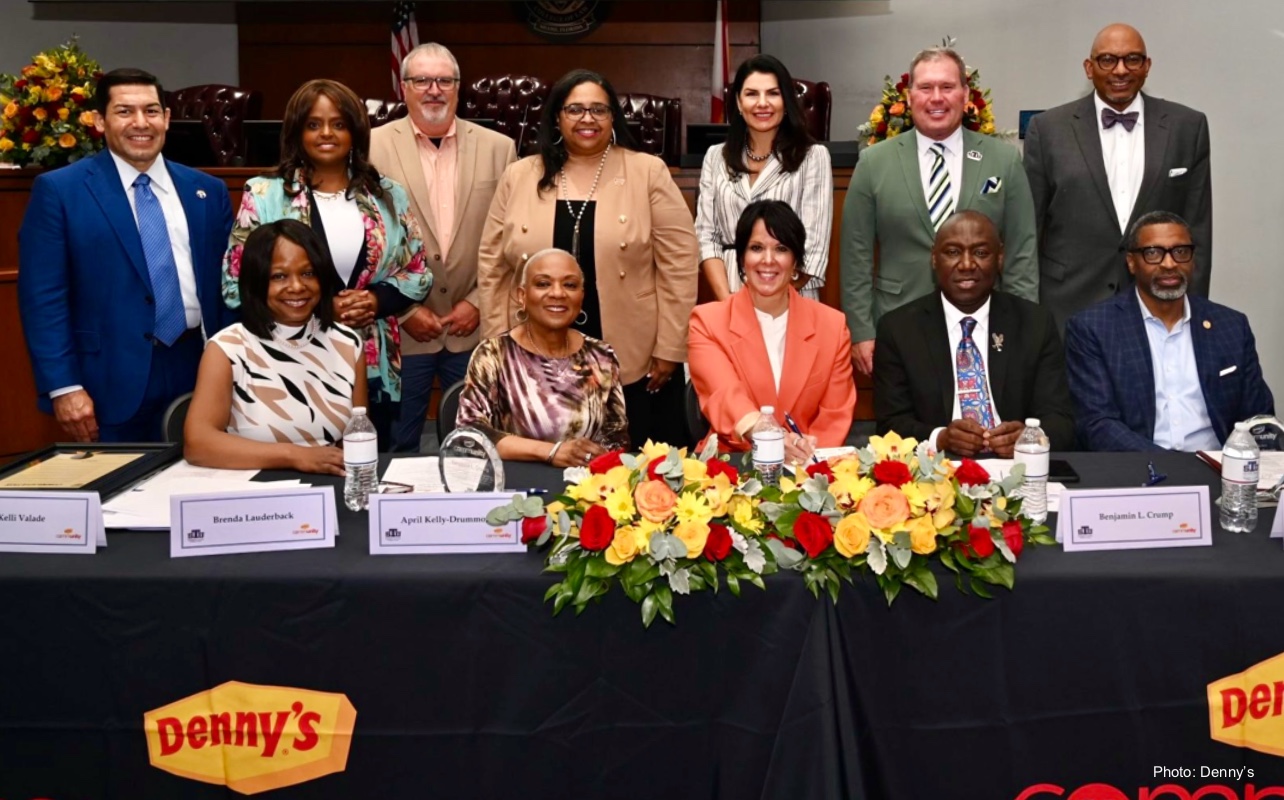
May 31, 2024
Denny’s Commits $3.3M To Community Initiatives, Partnering With 14 Organizations, Including NAACP
Denny's is taking a "holistic approach" to feeding people.
Restaurant chain Denny’s is investing $3.3 million into “a holistic approach to feeding people: body, mind, and soul.”
Part of that means collaborating with 14 partners, including the National Association for the Advancement of Colored People (NAACP), the Hispanic Association on Corporate Responsibility (HACR), and the St. Thomas University Benjamin L. Crump College of Law.
Following a press conference in Miami, leaders representing some of these organizations spoke with BLACK ENTERPRISE about the announcement.
“With young people, it’s always enthusiastic,” Crump, the famed civil rights attorney, told BE.
“And the fact that Denny’s, with its visionary leadership, has reinforced a commitment to diversity, equity, and inclusion is significant. NAACP President Derrick Johnson and I talk about helping to build the future generation of civil rights lawyers and social justice warriors in the lineage of NAACP stalwarts like Thurgood Marshall and Constance Baker Motley, so it was an enthusiastic morning, in my opinion.”
The alliance with these community partners is central to Denny’s Community Initiative, which began more than three decades ago in partnership with the NAACP, HACR, and 24 other diverse civil rights organizations and nonprofit groups to “drive positive change in the communities it serves,” according to a press release.
Under Denny’s Community banner, the company will allocate $3.3 million for a multi-year commitment to its partners and support organizations as they deploy local initiatives in cities nationwide.
“With 30 years of commitment with these organizations, all of these organizations started with us,” said April Kelly Drummond, Denny’s vice president and chief inclusion and community engagement officer.
Kelly explained the vetting process for the brands and companies involved in the initiative.
“We have a scholarship called Hungry For Education that helps us provide scholarships for elementary, high school, and college students,” Kelly explains. “Their advisory council meets with us to discuss how we can improve and impact the community on a grassroots level. We brought the Benjamin L. Crump College of Law on board as a scholarship recipient, along with others who have been with us from the beginning, like the NAACP and HACR. It’s an ongoing relationship that we continue to reinforce as we progress on our journey.”
Through Denny’s Community imprint, there will be more than $2 billion in investments into diverse-owned businesses, along with donations exceeding $2.5 million in scholarship funding.
“The five-year commitment was just a reaffirmation. For five years, we’ve been supporting these organizations, and we intend to continue our support in the future,” says Brenda J. Lauderback, Denny’s Corp.’s chair of the board of directors, the first African American to serve as a corporate board chair in the food service industry.
“We’re a 70-year-old brand,” she adds. “And I always say that the impact we want to make in our communities, for our guests, and our employees, is how we position ourselves to be here for the next 70 years.”
For NAACP President Derrick Johnson, an alliance like this mirrors the civil rights organization’s dedication to African Americans since its inception in 1909.
“It’s an example we can point to in terms of corporate behavior,” Johnson said.
“We are in a political climate where divisiveness has become the norm. We need to break out of that and see more corporate leaders and companies paving the way. Denny’s commitment over the past couple of decades is a great example.
“The things that bring communities together are food, music, and sports,” Johnson continued.
“How do we create an atmosphere where any customer can walk in the door and feel equal to anyone else? How do we know that the company they are supporting also invests in their communities? That’s the important behavior. More importantly, this nation is more diverse than ever. We are in a more global economy than ever before, and we must embrace the future and stop trying to recreate a 1950s America.”